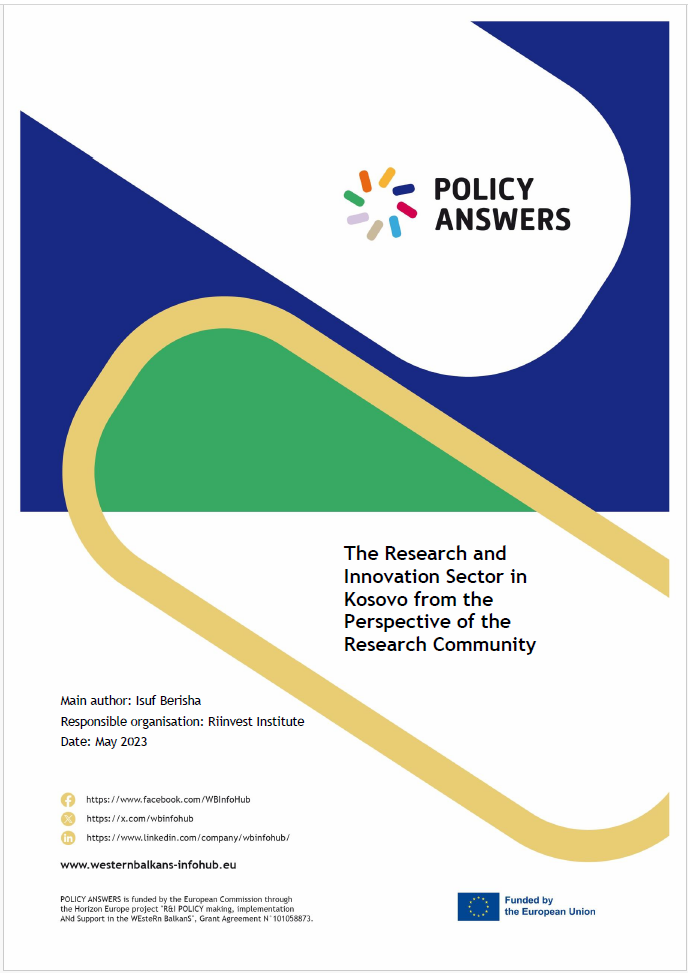This POLICY ANSWERS Brief was prepared in May 2023 by Isuf Berisha and published by the Riinvest Institute.
This report presents the results of a research conducted by the Riinvest Institute on the current situation of Kosovo’s Research and Innovation (R&I) sector and is based on assessments by Kosovo’s R&I community. The study was carried out within the frame of the POLICY ANSWERS project, which is supported by the European Commission (EC) through Horizon Europe (HE) and implemented by a consortium of European and regional institutions and entities.
For the purpose of this study, 26 researchers and innovators from higher education institutions (HEIs) and research entities were interviewed. The vast majority of them believe that the situation of the R&I sector in Kosovo is characterised by a significant lag, even compared to the neighbouring Western Balkans (WB) economies in the region, and especially the European Union (EU) countries. Interviewees are calling for a determined and long-term commitment from the Government and other responsible institutions, based on an informed and well-thought-out vision, to overcome this lag in the R&I sector in Kosovo. They require increased financial support for this sector and improvement of appropriate legal and administrative implementation infrastructure so that it becomes supportive and stimulating for the development of the R&I sector, rather than discouraging or hindering as it currently is in some instances.
The vast majority of respondents (respectively, nearly three-quarters) assess the current situation of the R&I sector in Kosovo as unsatisfactory or highly unsatisfactory. Similarly, most of the respondents think that the Government and other responsible institutions, as well as other actors and stakeholders in the R&I sector, have not yet adequately addressed the vital importance of this sector for the overall development of Kosovo.
Insufficient funding is one of the main reasons for the unsatisfactory situation in the R&I sector. Additionally, the majority of respondents believe that the legal and regulatory framework poses obstacles or limitations to the faster development of the R&I sector in Kosovo. Institutional structures or mechanisms, policies and procedures for administering the National Science Programme (NSP) are considered a bottleneck or an obstacle to a more efficient implementation of defined research and development objectives through legal solutions and strategic documents.
Inadequate legal and statutory solutions of HEIs, institutes, and other entities in the R&I sector regarding funding issues, which do not promote R&I development, are among the leading causes of stagnation in the R&I sector. The academic staff of universities/HEIs are not incentivised nor required to engage in research within contractual obligations. There are no functional organisational units for research at faculties and departments. Research is currently mainly limited to individual initiatives and activities. Regarding this, there is almost a unanimous consensus among respondents that the budget for research in HEIs should be separated from other budgetary items and that the work obligations of the academic staff should include research work, and that all of this should be reflected in the structure and level of salary.
The report provides informatino about the methodology used and data analysis including opinions on the situation of the R&I sector, causes or sources of problems, challenges and possible solutions and funding. Reflections of comments and explanations from respondents regarding their evaluations are included and result in recommendations.

